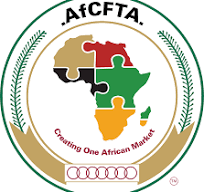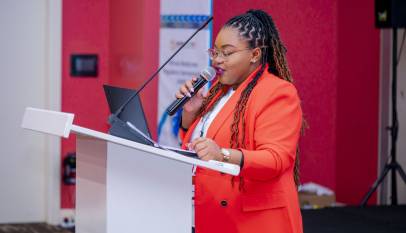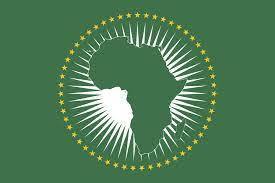Historic Public-Private Partnership between SAP SE and German Government Boosts Digital Skills Development in Developing Countries
 DURBAN, South Africa, 4 May 2017,-/African Media Agency (AMA)/- By the end of 2016 SAP SE and Germany’s Federal Ministry for Economic Cooperation and Development (BMZ) signed a historic agreement to strengthen tech entrepreneurship in developing countries under the BMZ’s Make-IT initiative. The agreement aims to bring together key public and private sector players in Germany, Europe and continents such as Africa, Asia and Latin America to foster IT start-ups in developing countries and emerging economies worldwide.
DURBAN, South Africa, 4 May 2017,-/African Media Agency (AMA)/- By the end of 2016 SAP SE and Germany’s Federal Ministry for Economic Cooperation and Development (BMZ) signed a historic agreement to strengthen tech entrepreneurship in developing countries under the BMZ’s Make-IT initiative. The agreement aims to bring together key public and private sector players in Germany, Europe and continents such as Africa, Asia and Latin America to foster IT start-ups in developing countries and emerging economies worldwide.
The Deutsche Gesellschaft für Internationale Zusammenarbeit (GIZ) GmbH, will implement the programme on behalf of BMZ. Make-IT starts in Africa in two pilot countries, i.e. Nigeria and Kenya. “We seek to foster IT startups because they have a great potential to create jobs, generate revenue and find creative and innovative solutions to pressing issues faced by citizens and their societies,” says Dr. Jan Schwaab, Head of the GIZ Programme “Make-IT in Africa”. “We strongly believe that start-ups can contribute to sustainable and inclusive economic growth if they manage to overcome the many hurdles they face – in particular getting access to markets and key partners from industry. We are proud to partner with SAP and other major German and European IT companies to support tech start-ups and their ecosystems, with greater market access and exposure.”
Under this umbrella SAP SE and GIZ agreed to jointly run the first Make-IT project worldwide in Nigeria. This project will combine the skills and experience of local and international GIZ experts with SAP’s successful Startup Focus-Program. This will ensure that tailored input meets the specific needs of each startup, including but not limited to design thinking experts, access to financing partners, access to leading edge technology, deeper collaboration with local accelerators, mentors etc. to maximize the probability of commercial success for each startup.
For more information, visit the website of the “Make-IT initiative”, visit the SAP News Centre or access the webpage
at http://www.bmz.de/de/mitmachen/Wirtschaft/Make_IT/index.jsp. Follow SAP on Twitter at @sapnews, follow SAP Startup Focus @SAPStartups
Distributed by African Media Agency (AMA) on behalf of SAP Africa.
About SAP
As market leader in enterprise application software, SAP (NYSE: SAP) helps companies of all sizes and industries run better. From back office to boardroom, warehouse to storefront, desktop to mobile device – SAP empowers people and organizations to work together more efficiently and use business insight more effectively to stay ahead of the competition. SAP applications and services enable more than 345,000 business and public sector customers to operate profitably, adapt continuously, and grow sustainably. For more information, visit www.sap.com.
# # #
Any statements contained in this document that are not historical facts are forward-looking statements as defined in the U.S. Private Securities Litigation Reform Act of 1995. Words such as “anticipate,” “believe,” “estimate,” “expect,” “forecast,” “intend,” “may,” “plan,” “project,” “predict,” “should” and “will” and similar expressions as they relate to SAP are intended to identify such forward-looking statements. SAP undertakes no obligation to publicly update or revise any forward-looking statements. All forward-looking statements are subject to various risks and uncertainties that could cause actual results to differ materially from expectations. The factors that could affect SAP’s future financial results are discussed more fully in SAP’s filings with the U.S. Securities and Exchange Commission (“SEC”), including SAP’s most recent Annual Report on Form 20-F filed with the SEC. Readers are cautioned not to place undue reliance on these forward-looking statements, which speak only as of their dates.
© 2017 SAP SE. All rights reserved.
SAP and other SAP products and services mentioned herein as well as their respective logos are trademarks or registered trademarks of SAP SE in Germany and other countries. Please see http://www.sap.com/corporate-en/legal/copyright/index.epx#trademark for additional trademark information and notices.
About the Federal Ministry for Economic Cooperation and Development
The Federal Ministry for Economic Cooperation and Development (BMZ) is headed by the Minister Dr Gerd Müller. The BMZ defines the principles that guide German development policy. It specifies priority areas, signs agreements with partner countries and secures financing for development cooperation. All efforts are informed by the United Nations’ Millennium Development Goals (MDGs). Since the MDGs were adopted in 2000, information and communication technologies (ICT) have been an accepted instrument in international cooperation. German development cooperation advocates the dissemination and use of ICT in partner countries, in order to leverage its potential to drive sustainable development and bridge the digital divide. Modern ICT is a key instrument in about 280 projects and programmes implemented in over 75 countries across the many different sectors supported by German development cooperation.
https://www.bmz.de/en/
About Deutsche Gesellschaft für Internationale Zusammenarbeit (GIZ) GmbH
The Deutsche Gesellschaft für Internationale Zusammenarbeit (GIZ) GmbH is a federal enterprise with worldwide operations. We support the German Government in the field of international cooperation for sustainable development. We are also engaged in international education activities around the globe. Through our work we assist people and societies in shaping their own future and improving living conditions.
The post Historic Public-Private Partnership between SAP SE and German Government Boosts Digital Skills Development in Developing Countries appeared first on African Media Agency.
Source: AMA














